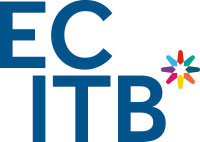Keeping up with new technologies and mental health awareness in the workplace are two key areas where more training should be offered to engineering construction

industry workforce.
The findings of a consultation by the Engineering Construction Industry Training Board (ECITB), based on the views of more than 200 employers, training providers and trade associations in the sector, have been published this week. The consultation asked for views of how grant funds, collected by the ECITB in the form of a levy on companies, are currently spent and how that investment in training could be improved.
The full report is available to download here.
Responses showed that nine out of ten engineering construction companies had used ECITB grants to fund training in the past 12 months and the same proportion felt the training on offer was suitable to their needs. Some 77% of employers felt the process for applying for grants from the ECITB was straightforward, while 78% of those responding felt the process for receiving grant payments was straightforward. Interestingly, slightly more SME respondents indicated they found the grant application and payment processes straightforward than large companies – possibly an indication of the support provided to them by ECITB account managers.
Upskilling in new and emerging technologies was identified as a major skills challenge for business and an area where training provision could be improved. A number of respondents said their companies found it difficult to keep their staff and skills up to date with the pace of technological change. They also cited training in new technologies, in particular data and digital, as an activity they would like to see greater support from the ECITB.
Another area where the ECITB could improve its support was training in mental health awareness. Employers said they felt staff wellbeing and stress awareness were increasingly mainstream requirements and formal training would make their team environments more productive.
 Chris Claydon, Chief Executive of the ECITB, said: “It’s great to hear that the vast majority of our companies value the grant funding the ECITB provides to support their training and that the grant application and payment processes are seen as straightforward.
Chris Claydon, Chief Executive of the ECITB, said: “It’s great to hear that the vast majority of our companies value the grant funding the ECITB provides to support their training and that the grant application and payment processes are seen as straightforward.
“Recent reforms to digitise our grant systems have significantly improved the experience for employers, while SMEs in particular continue to value the personal assistance and advice provided to them by ECITB account managers.
“I’d like to thank the companies that responded to the survey. We exist to support skills development in the engineering construction industry workforce to meet the needs of industry, so it’s also useful to hear the areas where we could improve and develop our offer to industry. We will take their responses on board as we develop our new grant policy and consider new areas of grant support.”
Other notable findings from the survey included:
- Employers said the most important training supported by the ECITB were:
- Apprenticeships (54%)
- Higher education/graduate training (41%)
- Supervisory training (38%)
- Project management (33%)
- Safety training (31%)
- Additional training that employers said should be included in the ECITB grants system:
- Increasing the ECITB talent pool/greater STEM engagement (18%)
- Improved transferability of skills (8%)
- More management and supervisory training (7%)
- Training in emerging technology (5%).
The ECITB’s consultation was undertaken following the Government’s review of Industrial Training Boards published last November and will be used to inform the ECITB’s future grants policy. The consultation report includes views submitted by 233 respondents as well as feedback from workshops held with establishments in-scope to the ECITB across Great Britain.
The ECITB’s Board is considering the findings in detail and will consider options for amending the existing grants policy by the Autumn. The ECITB’s new grant policy will be finalised and published by the end of the year. Any changes to grant policy or changes to the grant rates will be implemented from 2019 onwards, unless otherwise notified.
